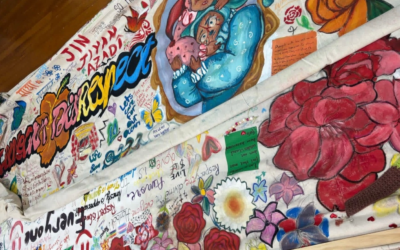Eshan, a university student and a part-time mechanic in Melbourne is packing his bags to leave for India this weekend. It’s the 19thday since he last heard from his family back in Kashmir. On a conversation with him over the phone, he sounds somewhat anxious and hesitant to speak about the current situation in his home state. He speaks very little because he knows very little about the whereabouts and well-being of his family.
He states, “The reason I’m going to India is to see and feel the treatment for myself. How do I sleep at night when I’m uncertain about what my people are going through for the past few weeks?”
On the 5thof August this year, India – the biggest democratic nation on Earth – cut off around 6 million Kashmiri voices from the rest of the world. Kashmir, a landlocked state between the nations of India and Pakistan has been stripped of their special status rights which fall under Article 370 of the Indian Constitution overnight, without the consent of its residents or its state government. Article 370 that grants special autonomy to the state of Jammu and Kashmir is at the heart of why the region joined India in 1947. Under this article, the residents of the state followed a separate law from the rest of the country in matters of land ownership and citizenship.

Revoking of this special status meant that the residents of the region would strongly express their dissent towards the Indian government which is why the state has been put on complete security lockdown since then. The internet has been blocked and telecommunication of any sort has been banned. On the 15thof August, when the rest of India celebrated its Independence Day, Kashmiris remained caged in their homes without any contact from the world.
Cases such as Eshan’s is not an isolated case in Australia currently. The implication of this brutal lockdown is being felt by many international Kashmiri students and migrants who are far away from their homes and struggling to contact their families. Reports of students facing financial issues as they are unable to receive funds from their parents have been making the rounds as well.
“This is like a psychological war on the minds of students here. Students are traumatised because of the uncertainty about what’s going on back home. There has been no access to any kind of communication, says Dr Samir Ullah, whose name has been changed to protect his identity and family in Kashmir.
Dr Ullah, 49, left Kashmir two years ago to migrate to Australia, leaving behind a majority of his relatives and well-wishers. He remains in constant touch with them over phone-calls and social media. Like others, he has been unable to contact any of them since the blockade was imposed. He stands in solidarity with his people’s sentiments when asked about the revoking of Article 370.

He further states, “This blockade has not only suppressed the voices of the people but also their everyday life. Human beings need to communicate in day-to-day life to go about their daily proceedings. There can be cases of medical emergencies and shortage of groceries. It is hampering their basic human rights”.
On news reports about the ongoing human rights violations in Kashmir, the narratives presented by the national dailies of India and the ones from international media platforms stand contradicted. While the Indian media reports peace and stability in the region, its international counterparts state otherwise. This dual narration of media sources is further bringing panic and restlessness among the students here in Australia for they are in a standstill, choosing which one to believe.
Seher Dareen from the Dept. of Media and Communications of the City University of London feels strongly about India’s approach towards the Kashmir issue. She is currently working on a thesis based on the 73 years of struggle in Kashmir under India’s occupation. On asking her expert opinion on the current issue she says, “This is a complete bastardisation of the democratic system. As for the international students, it’s a bit of a double hit because first of all, they’re away from their homes and on top of that, they can’t contact their families. So it hits harder on students, I believe”.



